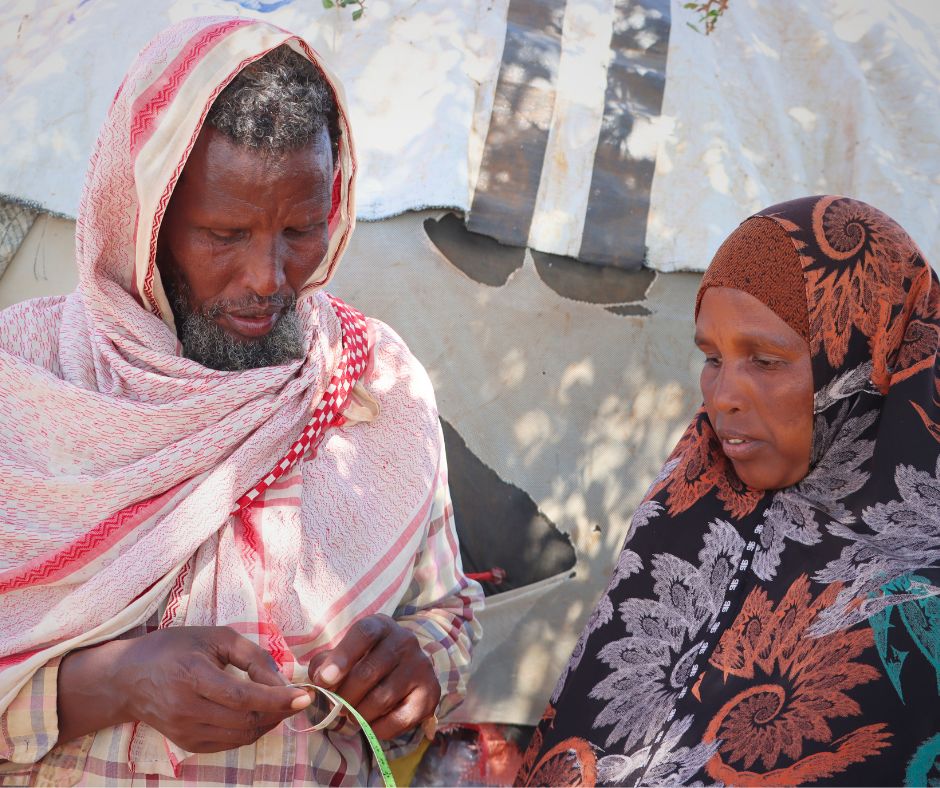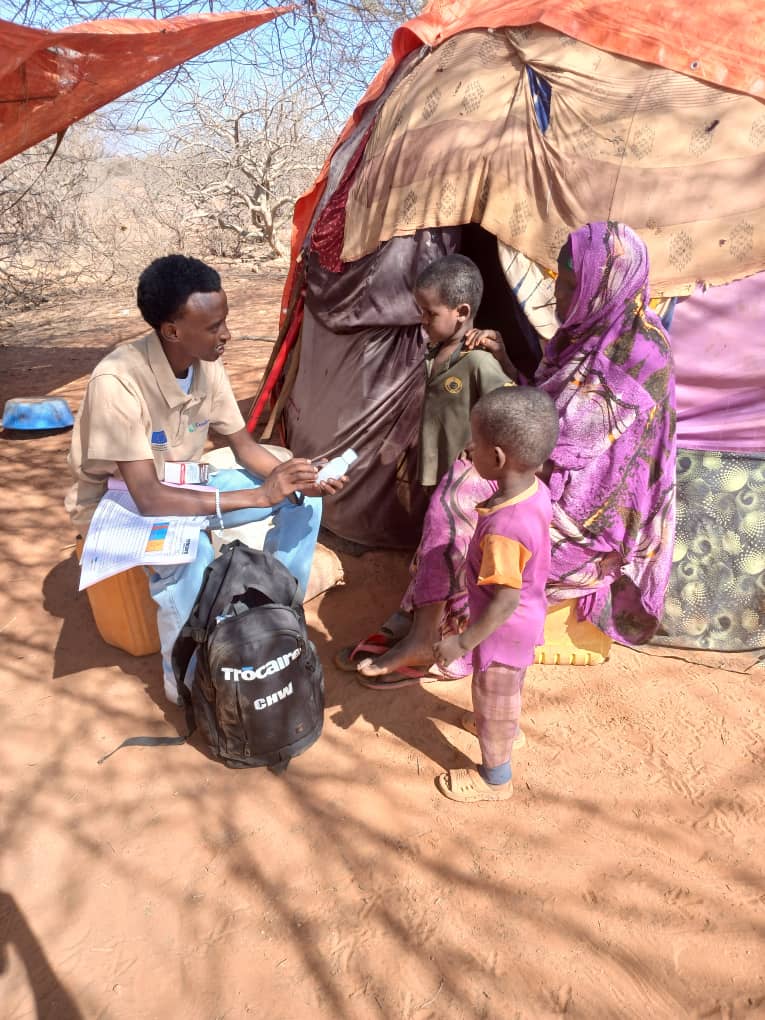Some of the primary causes of malnutrition in Somalia are the low socioeconomic status of households and a lack of information about healthy feeding habits of children. Fairly large segments of the population are also impacted by the low vaccination levels, where some sections of the population have a fear that vaccines could harm the health of their children, informed by the way things are done in their communities and the beliefs of some of the population.
Jamila, her husband, and their five children live in Tarbush Village near the Obosibo Halane Health Facility. The family survives on Jamila’s husband’s wages as a casual laborer. Mohamed, the 48-month-old son, is the youngest and last born of her family.
According to Jamila, Mohamed did not receive proper infant and young child feeding (IYCF) care during his first two years of life due to a combination of factors, such as his family’s lack of knowledge about proper feeding techniques and their low economic status.
In some communities in Somalia, there is great opposition to modern medicine and childhood immunizations. As a result of his father’s opposition to vaccines based on old traditions and beliefs, Mohamed’s growth and health were affected. The young boy’s illness began with fever, cough, diarrhea, oral thrush, and loss of appetite, and lasted for some time. The father took him to a traditional healer in the area, but the medications were ineffective.
A community health worker from Obosibo Halane Health Facility performing daily routine house-to-house visits and mid upper arm circumference (MUAC) screening visited Mohamed and his mother at their residence. Based on the advice of the community health worker, Mohamed was sent to the Obosibo Halane Health Facility for professional medical testing and treatment.
The health facility applying CMAM to the COVID-19 context, where only MUAC admissions criteria were applicable, classified Mohamed as SAM based on his MUAC measurement of 11.0 cm. The facility staff then evaluated Mohamed’s appetite for ready-to-use therapeutic feeding, as per protocol (RUTF). The nurse put him in an outpatient therapeutic program (OTP) after he passed the test.
Mohamed was also given Amoxicillin medication and a measles vaccination at the fourth visit, as he hadn’t previously received any routine immunizations.
In the months that followed, Jamila brought Mohamed back to the health center for more checkups and other important services, such as health, hygiene, and nutrition education, so she could learn to recognize signs that needed immediate attention and make sure Mohamed’s RUTF feedings were given correctly.
After 10 weeks of treatment in the outpatient therapeutic feeding program, Mohamed was cured of SAM. He was discharged from OTP in the end of October with a MUAC > 11.5 cm with no oedema. Then, he was transferred to the Targeted Supplemental Feeding Program (TSFP) at the same Health Facility Obosibo Halane for another 12 weeks of MAM treatment.
Mohamed gained some weight and his MUAC measurement read more than 13.0 cm after 12 weeks of treatment in the MAM Program. Towards the end of January, Mohamed was released from MAM as cured. The nutritionist has advised the mother on dietary diversity and proper hygiene so that her child does not relapse.
Through routine home visits and regular counseling, the Community-based Health workers with the support of facility based nurses, finally and successfully managed to engage Mohamed’s father and persuade him in changing his perception to word vaccines.
Mohamed’s father now understands the importance vaccination for his children.
Concern Worldwide, a member of the Caafimaad Plus consortium (Action Against Hunger, Concern World Wide, SOS Children’s Village, and International Medical Corps), is implementing integrated life-saving health and nutrition services, including Maternal Infant and Young Child Feeding services, to poor and vulnerable communities affected by the drought, conflict, and natural disasters like Jamila’s family and many others that live in hard-to-reach areas of the Lower Shabelle, Benadir, and Gedo regions.

Mothers Lead the Fight Against Child Malnutrition with Family MUAC
In a displacement camp near Baidoa, 30-year-old Mama Habey Abdullahi is now a trusted voice in her community. As a mother of five, she knows






